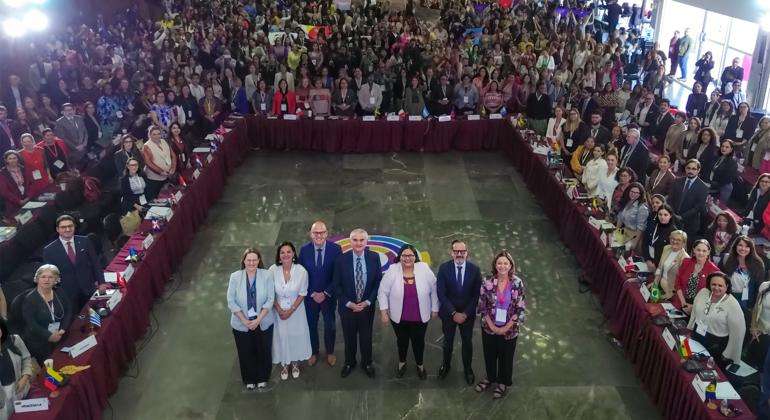Certainly! Here’s the translation into American English:
—
The aging population in Latin America and the Caribbean is creating urgent challenges, warns the United Nations Economic Commission for Latin America and the Caribbean (ECLAC). The restructuring of caregiving, which has traditionally been assigned to women, is becoming essential due to the demographic changes on the horizon. ECLAC’s executive secretary, José Manuel Salazar-Xirinachs, noted that between 2028 and 2032, in several countries in the region, the population over 65 is expected to outnumber children. By 2050, it is projected that approximately 34 million people will be over 80 years old, which will impose a significant burden in terms of care.
Salazar-Xirinachs emphasized the unsustainability of the current model, where caregiving is almost exclusively performed by women, mostly unpaid, despite their contribution to economic development. María-Noel Vaeza, regional director of UN Women, stressed that caregiving must become a collective issue, breaking traditional norms that confine these responsibilities to a single gender.
This topic was central to the XVI Regional Conference on Women in Latin America and the Caribbean, which took place from August 12 to 15 in Mexico City. During the event, which brought together over 1,200 participants, the Tlatelolco Commitment was presented, encompassing 80 agreements aimed at achieving gender equality and recognizing care as a human right. This “care society” model advocates for the right to care, to receive care, and for self-determination in self-care.
Vaeza also highlighted a significant advancement: the recognition of care as a basic and universal need by the Inter-American Court of Human Rights. This means that states must modify their laws to reflect this emerging human right, with transformative potential for the legislation of member countries of the Organization of American States.
From an economic perspective, ECLAC argues that care can be a driver of development. It is estimated that investing 4.7% of GDP over the next decade could generate around 31 million jobs in the sector, representing 12% of the regional workforce and causing a significant increase in tax revenues. The conference highlighted the need for collaboration between public and private institutions to turn this vision into reality, recognizing caregiving as a fundamental pillar for the social and economic progress of the region.
—
Let me know if you need any further assistance!
via: MiMub in Spanish










